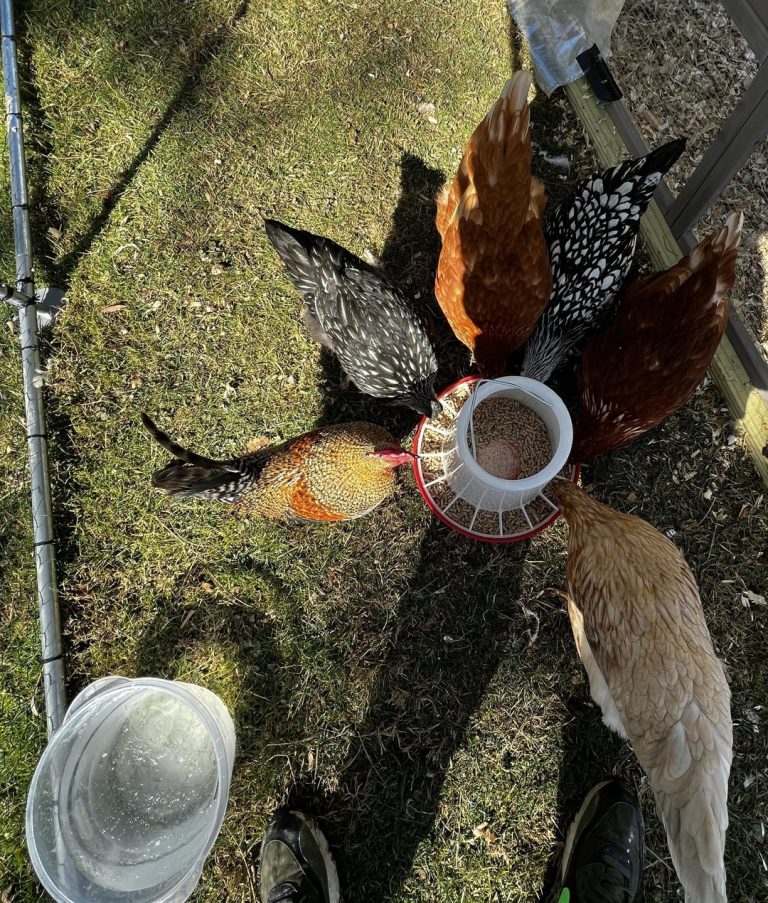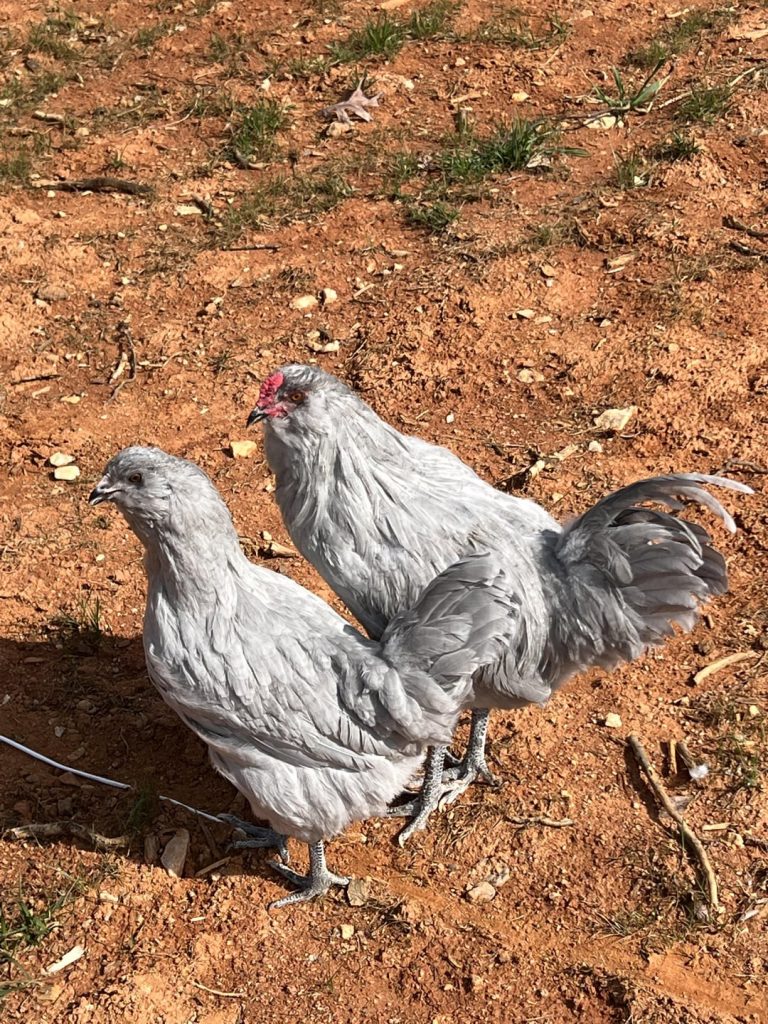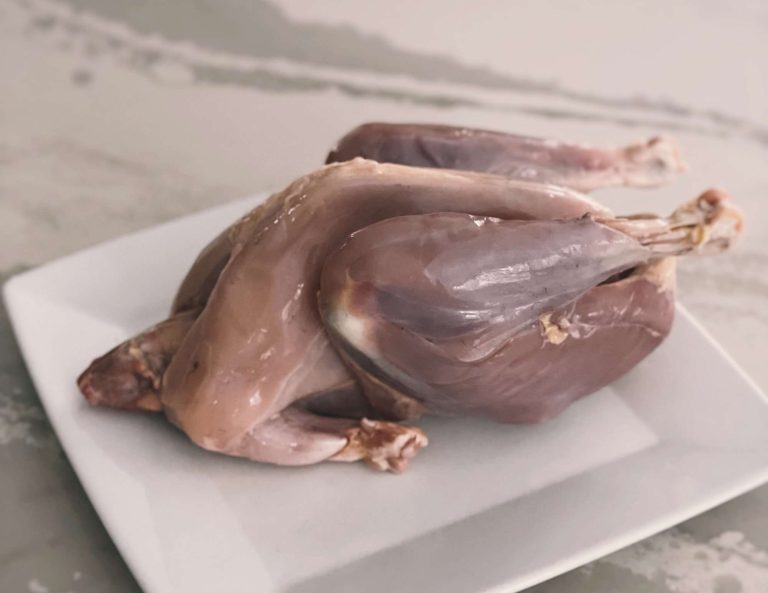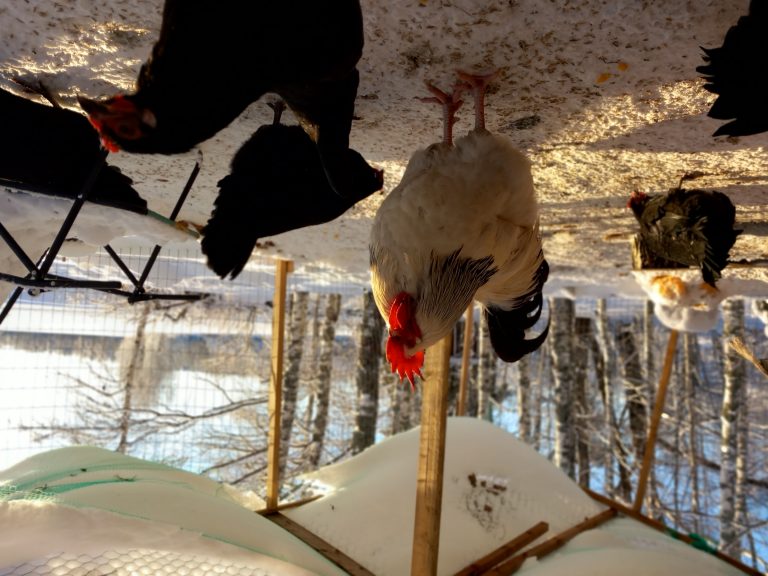Why Would a Rooster Crow at Night?
Roosters may crow at night due to environmental triggers, stress, or disturbances. They are instinctively wired to respond to changes in their surroundings.
Roosters are often associated with dawn, but their crowing can occur at unexpected times. This behavior can puzzle many people, especially those who raise chickens. Factors such as bright lights, loud noises, or even other animals can disrupt a rooster’s natural rhythm.
Stress from predators or changes in their environment can also trigger night-time crowing. Owners can better manage their flocks if they understand why this occurs. You can enjoy a more tranquil setting and lessen nocturnal disruptions by establishing a quiet, safe environment. Examine the causes of this behavior to help your birds live in a healthy environment.
In this article, you learn Why Would a Rooster Crow at Night?
The Nocturnal Serenade

Credit: www.thehappychickencoop.com
Roosters are known for their early morning crowing. Yet, they can also crow at night. Various factors can trigger this behavior.
Changes in light can confuse roosters. Artificial lights can make them think it’s dawn. Some roosters crow due to stress or fear. Loud noises or predators nearby can cause this response.
Many believe that a rooster crowing at night signals bad luck. This myth is not true. Roosters crow at night for natural reasons.
Understanding these behaviors helps in caring for chickens. Recognizing triggers can improve their environment. Happy roosters are less likely to grow at odd hours.
Decoding Rooster Behavior
Roosters have a natural internal clock. This clock helps them know when to crow. Crowing usually happens at dawn. Sometimes, roosters crow at night too.
Several reasons explain this behavior. Stress or changes in the environment can cause nighttime crowing. Loud noises or bright lights may disturb them. Roosters also communicate with other birds. They signal their presence to establish a social hierarchy.
Vocalizations can indicate territorial claims. A rooster might crow to warn others away. Crowing at night can also be a sign of discomfort or illness.
Environmental Influences
Light pollution can confuse roosters. They rely on natural light to know the time.
Bright lights can make them think it is daytime. This leads to crowing at night.
Noise in the night can also disturb roosters. Sounds like cars and sirens can wake them up.
They may crow in response to these unexpected sounds. This behavior can happen even in urban areas.
Understanding these factors helps explain why roosters crow at night.
Hormonal Factors At Play
Credit: www.quora.com
Roosters crow at night due to various hormonal factors. Testosterone levels play a key role in their vocal patterns. Higher levels can lead to increased crowing, even during nighttime.
Stress hormones can also affect a rooster’s behavior. Environmental changes, like loud noises or predators, may trigger crowing. This response helps them assert dominance and communicate with other birds.
Understanding these factors helps explain why a rooster might crow at night. It’s not just a morning ritual; it’s deeply rooted in their biology and environment.
Health And Well-being
A rooster crowing at night can signal illness or discomfort. Signs of sickness include unusual behavior, lack of energy, or poor eating. A rooster may also feel threatened or stressed, leading to nighttime crowing.
Diet plays a key role in a rooster’s health. Poor nutrition can lead to health problems. A balanced diet includes grains, vegetables, and protein. Ensure fresh water is always available. This can help prevent illness and reduce nighttime crowing.
Human Interactions
Farm practices greatly influence rooster behavior. Changes in the environment can lead to unexpected crowing.
Roosters usually crow at dawn. Yet, they can also crow at night if disturbed. Human activities, like loud noises, can trigger this behavior.
Keeping roosters in crowded spaces may affect their sleeping patterns. Stress from close quarters can lead to increased nighttime crowing.
Feeding roosters at irregular times can also disrupt their natural rhythm. This makes them more likely to crow outside typical hours.
| Farm Practice | Effect on Rooster Behavior |
|---|---|
| Crowding | Increases stress and nighttime crowing |
| Loud Noises | Triggers unexpected crowing |
| Irregular Feeding | Disrupts natural sleeping patterns |
Mitigating Midnight Crowing
To reduce midnight crowing, pet owners can take several steps. Ensure the rooster has a comfortable living space. A secure, dark area can help him sleep better at night. Provide enough food and water to keep him satisfied.
Creating a nighttime routine is also beneficial. Covering the coop can block out light. This can help signal bedtime for the rooster. Use natural sounds or soft music to calm him down.
Consider your neighbors and community. Inform them about your rooster. Let them know you are taking steps to minimize noise. Building good relationships can ease any concerns.
Be mindful of local noise ordinances. Some areas have rules about animal sounds. Always check local laws to avoid conflicts.
Final Talks: Why does the rooster crow?
A rooster could crow in the night due to bright light, loud noise, or stress. Artificial lights can confuse its system and make it think dawn is close. Noises such as barking dogs or any other disturbance may startle him. Stress from predators or alteration of the environment can also trigger crowing. Some roosters simply crow to mark their territory or assert dominance, even at odd hours.
FAQs
Why do roosters crow at 3am?
Roosters crow at 3 a.m. because their biological clocks recognize the time. It is also in response to nature and changes in light. The early crowing does occur before dawn and indicates territorial claims and invites hens. Roosters are sensitive to sounds, too, that can stimulate crowing. It is one of the ways they stay aware and communicate with their environs. All of these prepare them for what is to come on that day.
Why do roosters crow at 4am?
Roosters crow at 4 a.m. because they follow their internal clocks. They can feel the uprising sun, even when the sky has not brightened yet. Their crowing is a territorial marker to announce their presence to other roosters in the neighborhood. It is an instinct connected with their responsibility within the flock. They start early so that they may establish their dominance and get ready for the day’s work.
Why do roosters crow in the morning?
Roosters crow to claim their territory and establish dominance at the break of morning. Their biological clock senses the approach of the sunrise. This is a warning call for others to keep their distance and for them to be present. It informs their group of safety and contact. The crow is an instinct related to their responsibility within the flock. Many roosters will crow well before dawn, having been triggered by changes in the light and other noises.
Why do roosters crow all day?
Roosters crow all day to mark their territory and stay alert. They use their crowing to communicate with other roosters or warn about potential threats. It’s not just about morning; they respond to changes in light, sounds, or activities nearby. Their crowing helps them stay in charge and maintain dominance in their area. It’s a natural behavior linked to their instincts and social interactions.
What time do roosters start crowing?
Roosters can be said to crow very early, usually at dawn. They respond to light and use crowing as a territorial marking. Sometimes, they may crow earlier if they are exposed to artificial lights or noises. Their biological clock makes them naturally active before the sun is up. Though common, it may be at dawn, they may crow throughout the day for other reasons, such as alerting others or showing dominance. Each rooster may have slightly different timing based on its environment.
How to stop a rooster from crowing?
Limit a rooster’s crowing with simple tricks. Keep him in a dark, quiet space during the early morning. A no-crow collar can reduce the volume of his crow without harm. Feed him before dawn to distract him. Ensure he gets enough daily activity to tire him out. If the noise persists, consider relocating him to a less disturbing area. Consistent care and patience can help manage the behavior.
How to prevent a rooster from crowing?
To stop a rooster from crowing, reduce its triggers. Keep it in a dark, quiet place during the early hours. A no-crow collar can limit the volume of its crow. Ensure it has enough food and water to avoid crowing out of distress. Remove any nearby rival roosters, as competition increases crowing. Train it with consistent routines and reward quiet behavior.
At what age does a rooster start crowing?
A rooster typically starts crowing around 4 to 5 months of age. This is when their vocal cords fully develop. Younger roosters may make some sounds, but the loud crowing usually begins at this age. The crowing is a way for the rooster to assert dominance and establish territory. It often happens at dawn, but they can crow at any time of day.
Do hens crow like a rooster?
Hens do not crow like roosters. Crowing is only done by roosters. Hens do make other sounds, such as clucking or squawking. These are usually just to communicate with their flock. Roosters crow to claim their territory or to signal the break of day. Hens are quieter and keep themselves more occupied with mundane tasks such as laying eggs. While hens can become loud, their sounds are not the crowing of a rooster.





